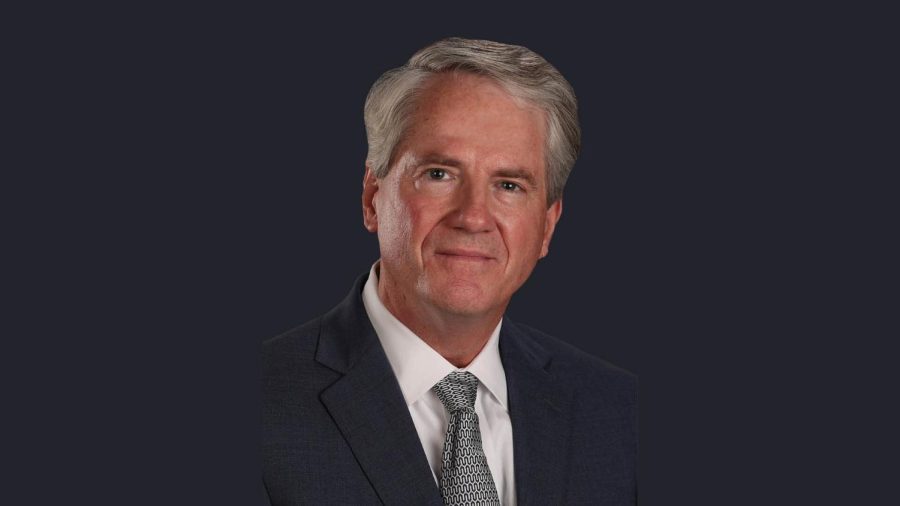Most UA System chancellors were chosen without interviews, including St. John
January 30, 2022
The University of Alabama System office confirmed that no candidates were interviewed for the position of UA System chancellor before now-Chancellor Finis St. John was appointed.
Search process
The last three chancellors of the UA System were appointed unanimously by the board of trustees, and no other candidates were interviewed during the hiring process. UA System spokesperson Lynn Cole confirmed a similar process for most chancellors before that.
The chancellor reports directly to the UA System board of trustees and is hired by the board. Duties of the chancellor include implementing board policies, establishing financial procedures for the University, and working with the governor’s office and any state or federal agencies according to Article 5 of the UA System Board Manual.
“The Board of Trustees conducts the search process and identifies individuals who possess the attributes and qualifications necessary to perform the duties established by the Board and Board Bylaws and Rules,” Cole said in a statement. “The most recent Chancellor search was consistent with this process.”
Frank LoMonte, director of the Brechner Center for Freedom of Information at the University of Florida and former director of the Student Press Law Center, said a private search process without interviewing other candidates only serves board members.
LoMonte said it’s becoming increasingly common to do these searches “entirely behind closed doors,” which is a “terrible management practice, and it’s definitely no way to run a government agency.”
“The takeaway, when you have a closed search, is that the only people who matter are the trustees and the trustees are always unrepresentative of the general public. The trustees are always disproportionately wealthy business people. The choice is never going to be representative of all of the campus community stakeholders,” LoMonte said.
A common legal trend
Cole said the majority of the eight chancellor searches have been conducted without interviews.
“When the Board of Trustees conducts the search for the UA System’s top leadership position, the process is tailored to the needs and strategic priorities of our three campuses and the UAB Health System,” Cole said. “Due to the targeted nature of Chancellor searches, oftentimes only the final candidate is formally interviewed by the Board. This was the approach for most of our eight Chancellor searches.”
Cole said in an email in December that while the board “advertised the position online and considered several candidates,” there was no interview process before appointing St. John.
“Because the board came to this unanimous decision, there was no need to conduct formal interviews with the other candidates under consideration,” Cole said. “This is not unusual for chancellor searches and is entirely at the Board’s discretion.”
LoMonte said this is a common legal trend.
“The law is typically not on the public’s side, and it’s only getting worse,” he said. “The general trend everywhere across America is to take these executive searches behind closed doors. There are a small handful of states where the public is clearly entitled by law to see at least the finalists, but there is an ongoing battle to close the process even in those states. It’s always the trustees and their private executive search firms pushing for less and less disclosure.”
Alabama state law
LoMonte said he believes Alabama state law does not lend itself to accessibility within executive searches.
“The law is so bad in most states, including Alabama, about access to anything that looks like it’s a sensitive, executive personnel decision,” he said. “There are broad exemptions in many states for executive personnel decisions, so that neither the records nor the meetings happen have to be open to the public. That’s just an unfortunate reality of the law, that powerful people write these laws and they write them to suit themselves.”
Sid Trant, UA System general counsel and senior vice chancellor, requested an opinion in 2019 from the Alabama attorney general’s office on whether the board of trustees has “exclusive authority” to appoint individuals to chief administrative roles including president and chancellor. Attorney General Steve Marshall wrote that the board does hold that authority.
LoMonte said the decision to request a legal opinion “suggests there was at least some uncertainty about the legality.”
The opinion was released March 20, 2019, less than a month before St. John was appointed.
Chancellor St. John
St. John served on the board of trustees for 17 years before being selected as the UA System’s interim chancellor in August 2018. The board of trustees removed the “interim” label from St. John’s title and unanimously appointed him as chancellor on April 12, 2019.
St. John’s annual base salary is $730,361, and he can receive an annual performance incentive of $105,000. He also receives a $12,000 annual car allowance and a $6,250 monthly housing allowance. St. John was paid over $1 million including the car and housing allowances in 2021.
LoMonte said transitioning from a long-held board position directly to the chancellor position is a “very unusual route.”
“It’s not unheard of, but it’s certainly not the primary method or the preferred method,” he said. “The downside risks are obvious. You’re at risk of getting somebody who is a political crony rather than somebody who is the best qualified. Also you’re not going to allow for the possibility that an outsider with a broader perspective might want the job. When you make an insider choice without doing a nationwide search, then you foreclose the possibility of bringing in new thinking.”
Chancellor Ray Hayes
Former UA System Chancellor Ray Hayes was also selected by a unanimous board decision in 2015 without a search process. Hayes served for three years as the UA System’s executive vice chancellor for finance and operations before becoming chancellor. Hayes’ salary was more than $653,000, not including the yearly performance incentive.
“I want to say this publicly,” former trustee John England Jr. said at a 2015 board of trustees meeting where Hayes was appointed. “I am aware, as others are aware, that we received some concerns from faculty about having input about the chancellor. We had in our midst an outstanding candidate, and so we did not have that national search, but that doesn’t mean it wasn’t considered.”
The Crimson White contacted 15 current and former members of the Faculty Senate. The majority did not respond with one member declining an on-the-record interview due to concerns about retaliation from the University.
Chancellor Robert Witt
Former chancellor Robert Witt was also appointed unanimously to replace Malcolm Portera by the board of trustees in 2012. Witt served as president of The University of Alabama for nine years before being appointed chancellor. No other candidates were considered for the position after members of the board approached Witt. Witt’s annual base salary was $660,000.
Cole said “several individuals” were considered during the search before St. John was appointed. Cole did not share the identities of those individuals due to privacy concerns.
“The pool of individuals was a diverse group representing a broad range of professional experiences from leading institutions of higher education to leaders in government and business,” she said.
UGA’s chancellor search
The University of Georgia publicized its 2021 chancellor search with a website that included contact information for public feedback, dates for listening sessions discussing the chancellor search and regular timeline updates.
“The Regents Search Advisory Group has scheduled listening sessions to receive input from students, faculty, staff and the public on its search for the next chancellor of the University System of Georgia,” a statement on the website said.
UGA students protested the board’s consideration of former Georgia Gov. Sonny Perdue as chancellor. Perdue was also the United States secretary of agriculture under President Donald Trump. The current UGA chancellor, Steve Wrigley, served as chief of staff to Georgia Gov. Zell Miller. The previous chancellor, Hank Huckaby, was Zell’s budget director.
Students within the University of Georgia system started a public campaign, Students Against Sonny, in an attempt to delay Perdue’s appointment as chancellor. LoMonte said public access is the reason the board is placing a hold on the search.
LoMonte said this highlights the political nature of closed-door executive search decisions.
“It’s not at all uncommon that you put people into the chancellorship because they know how to work at the highest levels of state government,” LoMonte said. “There’s nothing wrong with taking that into account, but when you do it secretly behind closed doors, there’s every risk that the job will be given to somebody in a political deal rather than based on merit.”
Questions? Email the News desk at newsdesk@thecrimsonwhite.com.





















